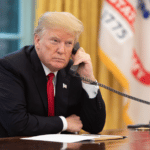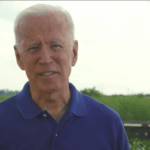


Elon Musk and Hillary Clinton recently made statements about the regulation of free speech on social media, igniting a fresh debate over the limits and responsibilities of online platforms.
In a public rally, Musk criticized the Democratic approach to free speech, while Clinton called for legislative control by repealing Section 230 to impose more stringent regulations on social media content according to Red State.
Speaking at a rally in Butler, Pennsylvania, Musk emphasized the importance of voting for Donald Trump to protect constitutional rights, particularly free speech.
He expressed concerns over the Democratic Party's stance, criticizing it as a potential threat to these freedoms. Musk's statements were part of a broader discourse on how digital platforms should handle user content.
In a separate instance, Hillary Clinton voiced her perspectives during a CNN interview, suggesting that controlling social media should be a priority for lawmakers. She specifically advocated for repealing Section 230, a critical provision that currently offers immunity to internet platforms for content posted by users.
Clinton argued that the existing view of social media platforms as neutral "pass-throughs" is too simplistic.
She emphasized the potential negative impacts of unregulated content, stating that without moderation, social and psychological harm could ensue. This perspective aligns her with others in her party who support more oversight of online expression.
Clinton's stance is reflected by the current Democratic presidential and vice-presidential candidates, who also support increased monitoring of social media platforms.
During a recent vice-presidential debate, Governor Tim Walz displayed misconceptions about the First Amendment, underscoring the broader misunderstanding of free speech and misinformation.
Governor Walz inaccurately referenced the notion of "yelling fire in a crowded theater," a phrase often misused in discussions about free speech limitations. Critics point out that this analogy is not legally applicable in the modern context and may mislead public understanding of free speech protections.
George Washington University law professor Jonathan Turley criticized Governor Walz for spreading misinformation while advocating for censorship. Turley highlighted the importance of understanding the First Amendment, which was specifically designed to safeguard unpleasant or controversial speech.
Furthermore, Turley disapproved of Clinton's advocacy for social media regulation, arguing that calls for censorship could pose a greater threat to constitutional rights than the issues they seek to address.
His critique underscores the ongoing debate over the balance between protecting freedom of speech and preventing harm through digital platforms.
The First Amendment has often been a point of contention, especially when it comes to the regulation of speech on social media platforms. It is crucial to remember that it was crafted to protect expressions that may not be popular, thus ensuring a diverse range of viewpoints can be expressed publicly.
The debate continues as public figures, politicians, and legal scholars discuss how best to balance these protections with the desire to prevent harm that may arise from unmoderated online content.
The current dialogue highlights the complex interplay between ensuring safety and upholding fundamental constitutional protections.
As these discussions evolve, social media companies find themselves at the center, facing increasing scrutiny over their role in moderating content. The call to repeal Section 230 could drastically alter how these platforms operate, with potential implications for how content is shared and monitored.
This debate raises important questions about the responsibilities of platform operators in today's digital landscape.
With figures like Musk and Clinton proposing contradictory approaches, the conversation about free speech and regulation is far from settled.
The outcome of this debate could have significant ramifications for internet platforms and their users. As more public figures take a stance on the issue, the implications for policy and personal freedoms will be closely watched by legal experts and citizens alike.
The conversation on free speech and social media regulation continues to evolve, with implications that extend far beyond online interactions. As the discussion progresses, its impact on future legislative actions and platform policies will be critical to observe.



